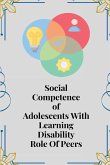Assessing Social Enterprise Impact on Livelihood Programmes The dynamic field of social enterprise has witnessed a growing emphasis on creating positive social impact while addressing various societal challenges. Among the diverse areas where social enterprises make a substantial difference is in livelihood programmes. These initiatives aim to enhance the economic well-being of individuals and communities, often focusing on marginalized or disadvantaged groups. Assessing the impact of social enterprises on livelihood programmes is a crucial undertaking that enables stakeholders to measure the effectiveness and sustainability of these initiatives. By evaluating their outcomes, strengths, and areas for improvement, this assessment helps refine strategies and maximize the positive changes brought about by social enterprises. One significant aspect of assessing social enterprise impact on livelihood programmes is the measurement of economic empowerment. Livelihood programmes often aim to generate income, improve employment prospects, and enhance financial independence. Evaluating whether social enterprises contribute to these objectives involves analyzing the increase in job opportunities, income levels, and economic stability within the target communities. Beyond economic factors, assessing the impact also considers the social and environmental dimensions. Social enterprises typically prioritize inclusivity, empowerment, and community development. Evaluators examine whether these organizations effectively engage local communities, foster social cohesion, and promote sustainable practices. Furthermore, they assess the long-term implications of the livelihood programmes, such as improved access to education, healthcare, and other essential services. The assessment process itself encompasses various methodologies and tools. Quantitative measures, such as surveys and statistical analysis, help gauge tangible outcomes like income growth or employment rates. Qualitative methods, such as interviews and focus groups, provide deeper insights into the lived experiences of individuals impacted by the social enterprises. Combining these approaches helps create a comprehensive understanding of the multifaceted effects of social enterprise interventions. Additionally, an effective assessment framework considers the specific context and goals of the livelihood programme and the social enterprise. It examines the alignment between their missions and activities and evaluates whether they create a meaningful and sustainable impact on the lives of the intended beneficiaries. This holistic approach enables a nuanced evaluation that goes beyond mere numbers and delves into the qualitative transformations experienced by individuals and communities. The findings of impact assessments play a crucial role in informing the decision-making processes of social enterprises, policymakers, and funders. They provide insights into the effectiveness of different strategies, the replication potential of successful interventions, and the identification of areas requiring further attention or adjustment. Moreover, they enhance accountability and transparency, ensuring that resources are allocated efficiently to maximize social impact. In conclusion, assessing the impact of social enterprises on livelihood programmes is a vital endeavor for understanding the effectiveness and long-term sustainability of these initiatives. By evaluating economic, social, and environmental outcomes, employing diverse methodologies, and considering specific contexts, impact assessments facilitate continuous improvement and contribute to the growth and positive transformation of communities and individuals served by social enterprises.








